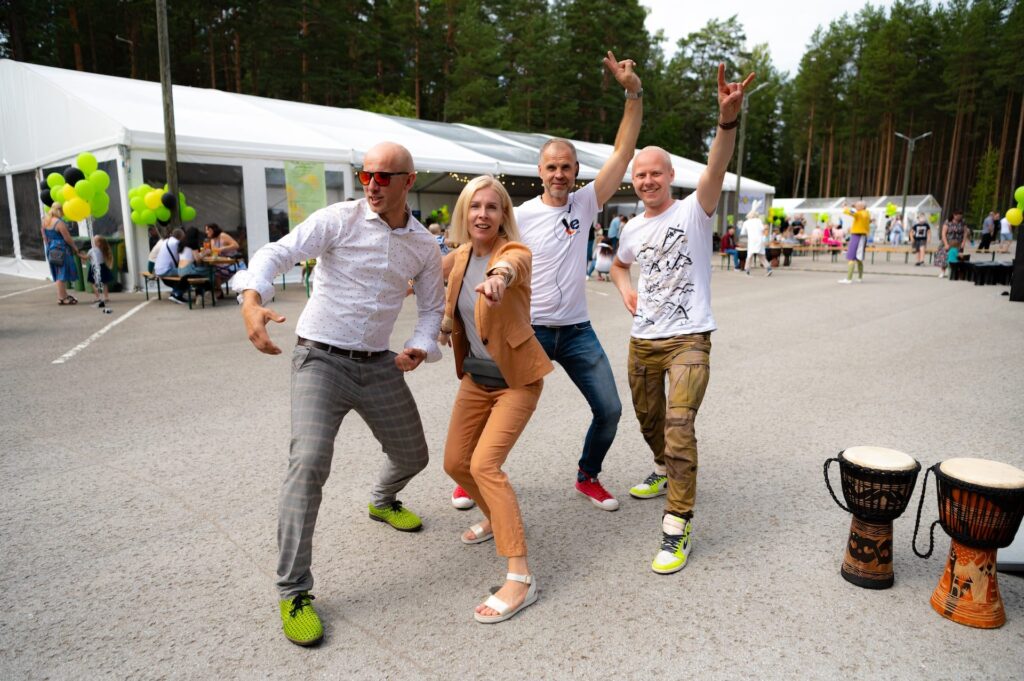A diverse work environment gives every employee the opportunity to learn and grow, while feeling recognized and supported. This is also one of the reasons why joint company events are so important and valued.
Every company event should be the face of its employees.
What is the purpose of the event, who are the people who come there, what message do we want to convey? If these questions have been answered, a big step towards a meaningful joint event has already been taken.
For many companies, summer days can be a place where you see some colleagues face-to-face for the first time – the name under the emails suddenly gets a visual and a voice. Summer days are also a great opportunity to bring out people’s hobbies-interests-talents during teambuilding and various activities and thereby give content to that face and voice.
You will learn that Mari, who works in the sales department, likes roses and has a large flower garden at home, which attracts her outside of work.
Or Martin has dogs and is a complete animal person 🙂
It gives a human dimension and communication in such an information field is already half as pleasant:) And it also creates the feeling that I myself want/dare to open up.
It’s not just how good my performance is in the work environment that matters, but also who I am as a person and what I choose/value in my life and in the big picture. This in turn increases loyalty, unites people and creates a pleasant feeling of “us”, strengthens the company’s work culture and the feeling that I am valued and my opinion and uniqueness are valued.
How do such meetings affect employees’ satisfaction – in the big picture, with their work environment, with people, with themselves?
When there is trust and synergy between team members, they communicate more effectively, avoiding potential conflicts, strengthening team unity and creating positive forms of communication.
Effective teamwork and team spirit have a significant impact on a company’s business results.
A Gallup study claims:
* 21% higher profitability
* 17% higher productivity
* 41% lower absenteeism
* 24% lower employee turnover (especially in high turnover organizations)
When team members trust and value each other, they communicate more effectively with each other, avoiding potential conflicts, increasing team cohesion, and creating positive interactions.
Great teams share several common traits:
* Team members recognize the individual talents of each team member.
* Team members are partners who support each other’s development.
* Team members use their knowledge to plan, strategize, analyze and direct activities.
